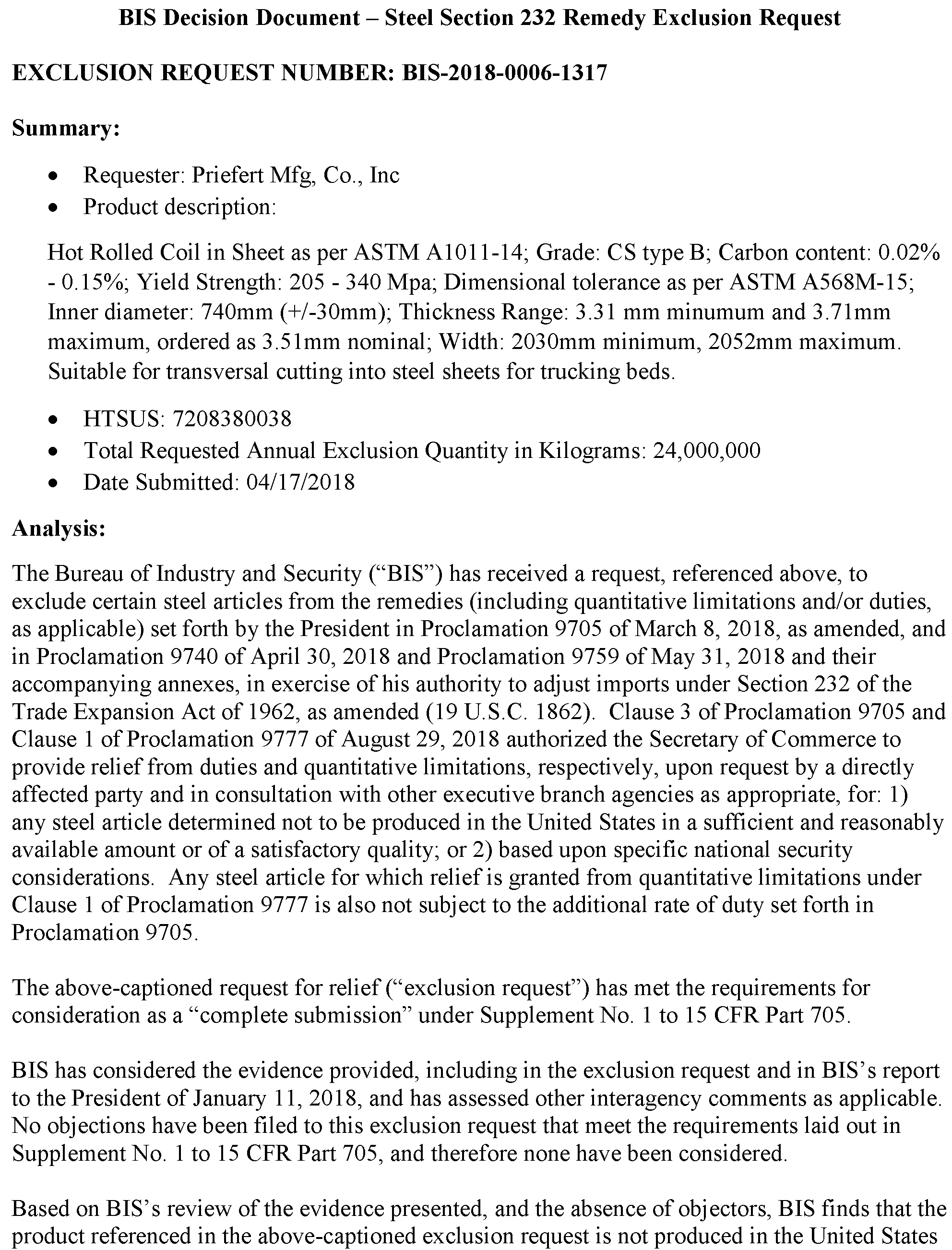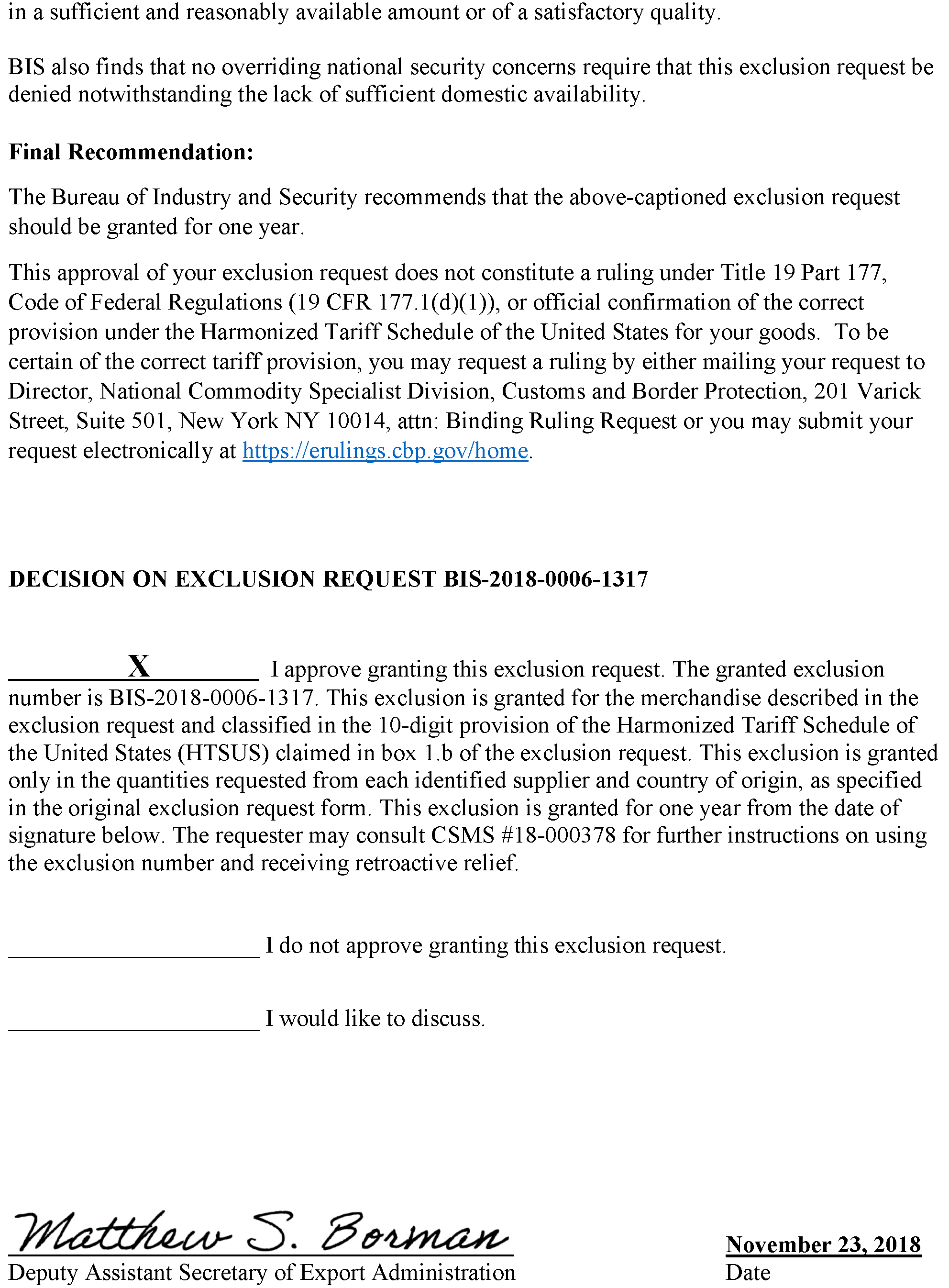Government/Policy

December 6, 2018
Priefert Wins Tariff Exclusion After Long, Frustrating Wait
Written by John Packard
Calling it “a good day for the little guys” after a frustrating eight-month wait, Priefert Manufacturing Co. reports the Commerce Department has finally granted the company a one-year exclusion on a 10-gauge, 80-inch hot rolled product that is not made in the United States. Based in Mount Pleasant, Texas, Priefert is a service center and manufacturer of ranching equipment and it needs that particular steel to fabricate truck beds. The Commerce ruling clears the way for Priefert to source the steel outside the U.S. without having to pay the 25 percent Section 232 tariff.
As Steel Market Update reported back on Oct. 2 (see The Tariff Exclusion Process: A Case Study in Frustration), the product exclusion filing was complicated and time consuming. Chris Shipp, Priefert General Manager, said he was in weekly contact with Commerce to try to expedite the process. “It took too long to investigate and it was too long to wait for a product that is not made in the United States. It’s frustrating when you see someone who filed a request after you did and they get an answer while you wait.”


Trade attorney Lewis Leibowitz tells SMU that the above letter was “just the first step in a long process” as the importer of record will have to work through the Customs Department to recover the nearly $500,000 in tariffs paid on this material since March 2018. Duferco, as the trader of record, is now working with U.S. customs on getting the tariffs returned.
As noted in the October article, two domestic steel mills originally filed objections to the Priefert exclusion request. One mill withdrew its objection. Priefert is now working with that supplier to see if they can make the product at one of their U.S.-based steel mills. “They would like to try to make the item. We hope to do a trial during the first quarter of 2019,” Shipp said.
Shipp credited Republican Congresswoman Jackie Walorski of Indiana and her staff for assisting Priefert through the process. It was her chief of staff who called to notify them that their exclusion had been granted.







